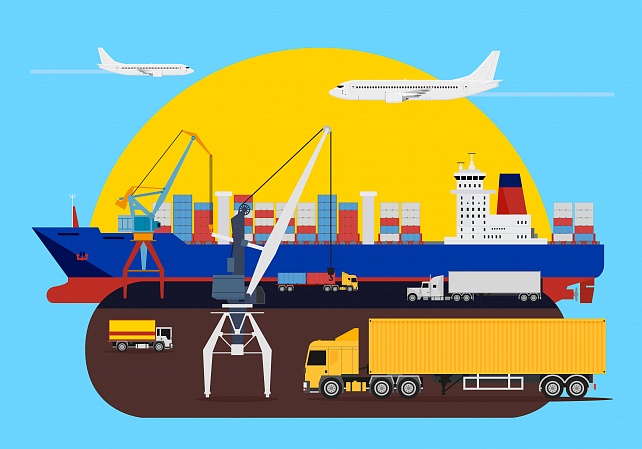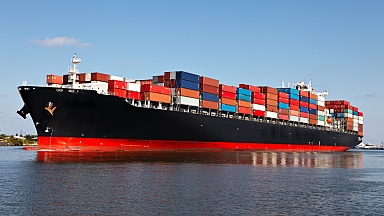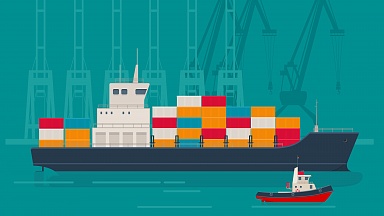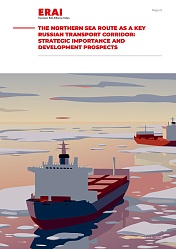The delayed but anticipated impact of the Suez blockage on Asia-Europe container flows and freight rates finally kicked-in this week, with Asia-North Europe rates climbing by around 6% to an average of $7,762/FEU, after falling 14% since February through to last week, new analysis by freight digitalisation and rates platform Freightos.
Asia-Mediterranean prices also increased 7%, to $7,889/FEU, just 2% under their March peak, though backhaul rates from Europe to Asia have remained unchanged as carriers focus on returning empty containers.
Freightos noted that Asia-Europe rates — which had fallen from a February peak of $8,455/FEU, while transpacific and transatlantic rates increased — appeared to be climbing again. One reason is that carriers, seeking to avoid or minimise delays caused by congestion growing at ports like Rotterdam — where a queue of waiting ships has formed — are skipping port calls and offloading at alternate ports, speeding the return of empty containers to equipment-scarce Asian origin ports, but causing more difficulties for many European importers, Freightos speculated.
It said the surge of arriving ships in key Asian ports was causing delays there as well, with port congestion and delays at both origins and destinations expected to make the container shortage in Asia worse over the next few weeks, before easing in early June.
Meanwhile, China-US West Coast prices went unchanged at $4,854/FEU, although this rate is 204% higher than the same time last year. China-US East Coast prices increased 2% to $6,222/FEU, and are 131% higher than rates for this week last year.
April GRIs
Those figures are consistent with some of the latest market observations by freight forwarder Flexport. In its latest Ocean Freight Market Update this week, Flexport highlighted that there had been rate rises on Asia-Europe services from most carriers in the form of general rate increases (GRIs) from 15 April «as a result of tight space and equipment due to Suez Canal situation». Recommending advance booking notice of at least 21 days prior to cargo ready date (CRD) for Asia-Europe services, Flexport noted that the ripple effect from the Suez Canal blockage «will become very visible in the next few weeks, with quite a number of blank sailings from Ocean Alliance and The Alliance.»
It said capacity was «severely reduced in weeks 16, 17, 19, and 21, noting that the «equipment shortage has become very serious again, especially out of Shanghai and outports. Both space and equipment will be very challenging in the coming month.»
It reported a similar picture for services from Asia to the US east coast (USEC), which was impacted by Suez Canal capacity issues and had also seen a GRI on 15 April.
Flexport added that carriers were now «starting to look ahead to the 2021 contract year in the midst of extreme challenges to the USEC and inland locations. Premium remains the entry point to the market on almost all lanes. Transloading services are becoming more essential to avoid challenges to the USEC.»
Europe-North America transatlantic westbound were also severely impacted, Flexport noted, with a GRI implemented on 15 April and another likely from 1 May. It recommended advanced booking notice «of at least 5 weeks prior to CRD», noting that this market was «expected to remain dynamic through Q2 as capacity stays heavily constrained», urging customers that «booking early is key to securing space. Use Premium products for the urgent cargo needing higher reliability.»
On the equipment side, it noted that equipment supply «is extremely tight across Europe as port congestion and lower vessel capacity hinder empty-container repositioning, particularly at inland depots», advising customers to «allow flexibility in routing and empty pick up from the port».
Looking at transatlantic capacity development, it noted that there were two upcoming blank sailings, in week 17 and week 19, warning customers to «expect more void sailings and change of port rotation or port omissions announced at short notice in the midterm as carriers try to recover weekly schedule integrity».




